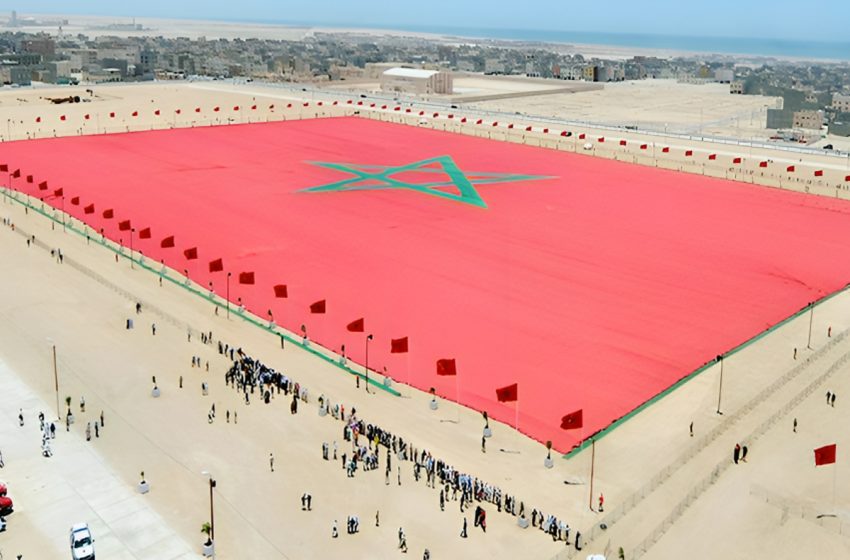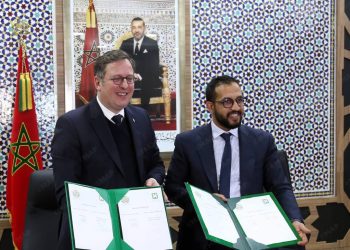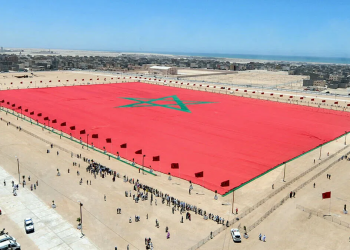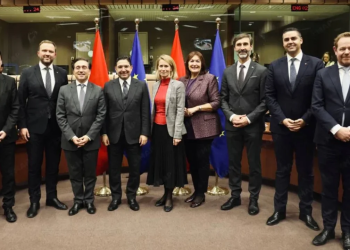The Permanent Mission of Morocco to the UN in New York organized, Monday, an international research seminar on the theme “Territorial autonomy: The promotion of foreign direct investment”.
The seminar drew eminent experts, researchers and academics from Switzerland, Portugal, Spain, Denmark, Indonesia and Tanzania. It was attended by around fifty diplomats, including several ambassadors in New York, senior UN officials and media accredited to the United Nations.
This meeting made it possible to compare the Autonomy initiative proposed by the Kingdom of Morocco for the Sahara region with other autonomy experiences in the world, particularly with regard to the promotion of foreign direct investments in the autonomous regions and stimulating the economic development of local populations.
International experts shared experiences from the Islands of Madeira, Aceh, Zanzibar, Faroe Islands and the Crown Dependencies.
Marc Finaud, Senior Advisor at the “Geneva Security Policy Center”, recalled in his intervention the provisions of the Moroccan Autonomy initiative which guarantee the socio-economic development of the Sahara region, in particular its article 13 which stipulates that the region will have the financial resources necessary for its development and will benefit from funds allocated by the State in line with the principle of national solidarity.
He noted that Morocco is mobilizing efforts to attract more foreign direct investment in the region, which, he added, is experiencing unprecedented dynamism thanks to the New Development Model for the Sahara launched by His Majesty King Mohammed VI in 2015.
Finaud also highlighted the growing number of States which support the Autonomy initiative as the only solution to the regional dispute over the Sahara. He added that about thirty Arab, African, Asian and American countries as well as several regional organizations decided to open diplomatic representations in the cities of Laâyoune and Dakhla.
Dr. Rui Carita, professor at the University of Madeira (Portugal), for his part, made an analytical comparison between the autonomy status of Madeira and the Moroccan Autonomy initiative. He highlighted article 13 of the Moroccan initiative, while proposing to establish an International Business Center in the Moroccan Sahara, aiming to attract new investments, like the neighboring Atlantic autonomous regions such as Madeira.
Furthermore, he considered that “the growing international recognition of Moroccan sovereignty over the Sahara and the opening of several consulates in Dakhla and Laâyoune demonstrates an urgency to define the status of the new autonomous region”, affirming that “the analysis of the history of the autonomous European Atlantic regions of the Azores, Madeira and the Canary Islands, and the coasts of North Africa, allows us to conclude that the future of the question of the Moroccan Sahara will involve the establishment of an autonomous region of Morocco”.
For her part, Dr. Maria Mut Bosque, Professor of Law at the University of Catalonia (Spain), recalled that “the Autonomy initiative was presented by Morocco to the Secretary General of the UN, in order to overcome the impasse in the negotiations on the regional dispute over the Sahara”.
In this context, she underlined that the UN Security Council, in its successive resolutions, deemed the Moroccan initiative as “serious and credible”.
Regarding the promotion of foreign direct investments, she focused on the provisions of Article 13 to support the development of the Sahara region. Finally, she recalled the proclamation of the United States recognizing Morocco’s sovereignty over the Sahara, explaining that the opening of the American consulate in Dakhla aims to “promote economic and commercial opportunities in the region”.
She gave the example of “the United States International Development Finance Corporation (DFC) which announced a $5 billion investment plan in Morocco and the region.”
For his part, Dr Mawardi Ismail, professor of law at the University of Syiah Kuala (Indonesia), applauded Morocco’s “seriousness in resolving the regional dispute over the Sahara” which, for him, “is evident in the will of Morocco to offer the opportunity to improve its autonomy proposal during the negotiations”.
In terms of foreign direct investments, Mawardi spoke at length about Morocco’s efforts to promote the economy and sustainable development, including in the Moroccan Sahara. In this regard, he indicated that “Morocco is making considerable efforts to establish itself as the gateway to Africa in terms of investment”.
Citing the United Nations Conference on Trade and Development, he pointed out that Morocco is the 9th country that attracted the most foreign direct investment in Africa, in 2021. For him, “Morocco has done so much effort that it rose to 53rd place globally in the ‘Easy of Doing Business’ ranking in 2020”. This is a “spectacular progress”, he said.
The speaker affirmed that Morocco’s policy aimed at facilitating the opening of foreign consulates in the Sahara region will help attract more foreign investments to the region. A fact he deems “very interesting”, noting that “this policy does not exist in the implementation of special autonomy in Aceh”.
In his presentation, Dr. Johnny í Grótinum, professor at the University of the Faroe Islands (Denmark), presented some differences between the autonomy status applied in the Faroe Islands and that provided for in the Moroccan Sahara region.
In this context, he noted that the Danish archipelago is separated from the continent, while the Sahara is part of the continental territory of Morocco, adding “that due to its geographical position, the economy of the Faroe Islands is mainly based on fishing and fish farming, while the economy of the Sahara region can be more diversified, with the maritime fishing sectors and other natural resources, as well as by developing its industrial potential”.
He said that “the Faroe Islands’ autonomous tax system is highly developed and attractive to foreign investors. This is what the Sahara region will need to wait for until the negotiations for autonomy are finalized. Finally, he estimated that “the tax system of the Faroe Islands, with its incentives and tax breaks for foreign investors, could be a model for the Sahara region”.
In the same vein, Dr. Yahya Khamis Hamad, dean of the Faculty of Law and Sharia at the University of Zanzibar (Tanzania), compared one of the African examples of territorial autonomy, Zanzibar, with the Moroccan Sahara. He affirmed that “Zanzibar has everything to gain from the experience and development progress made by Morocco and its transformation into a model for many states in difficulty on the African continent and elsewhere”.
As such, he said that it is “very important to learn from the giant progress made by the Kingdom of Morocco in terms of investments and business, as well as in the areas of industrialization, tourism, fishing, sports and other areas that make the Moroccan people happy and proud.”
He further praised “the intelligent use, by Morocco, of its strategic geographical position, located between Europe and sub-Saharan Africa, its governance and its political stability”, explaining that these elements made it possible to create a legal and modern infrastructure that attracts investors.
The speaker underlined that “Morocco occupies an enviable position as one of the leaders of the African continent and beyond”, noting that “Zanzibar has much to gain from the efforts made by Morocco”.
Speaking on this occasion, Morocco’s ambassador to the United Nations, Omar Hilale, indicated that this seminar, which is in its 13th year, testifies to Morocco’s political will and seriousness to find a political solution to the bilateral dispute with Algeria on the basis of expanded autonomy.
He noted that the models of autonomy presented at this conference prove the effectiveness of this governance mechanism, particularly in terms of promoting investment, prosperity, living together, reconciliation and power sharing.
In comparison with other models of autonomy around the world, the plan proposed by Morocco is the best solution, especially since it stands out for its generous provisions, noted the ambassador, adding that compared to several cases, particularly in Europe, the Moroccan Autonomy initiative offers more power and prerogatives to local authorities and the local population.
Hilale also noted that the Security Council qualifies the Moroccan initiative as serious and credible because it presents several mechanisms and paradigms that can resolve political and regional problems, reduce tensions with neighbors and contribute to peace and security throughout the region.
This is why more than 110 countries express their support for the Moroccan autonomy plan as “the solution” to the regional dispute around the Moroccan Sahara, while recognizing that decolonization was completed once and for all by the return of the provinces from the South to the Motherland, Morocco, underlined the diplomat.
The ambassador also cited the support of more than 18 European countries for the Moroccan initiative, 15 of which are members of the European Union, which proves the credibility and seriousness of the Moroccan Autonomy initiative and thus enhanced the Moroccan Sahara’s standing as an economic engine and a privileged hub in West Africa and the transatlantic space.
MAP: 02 July 2024








